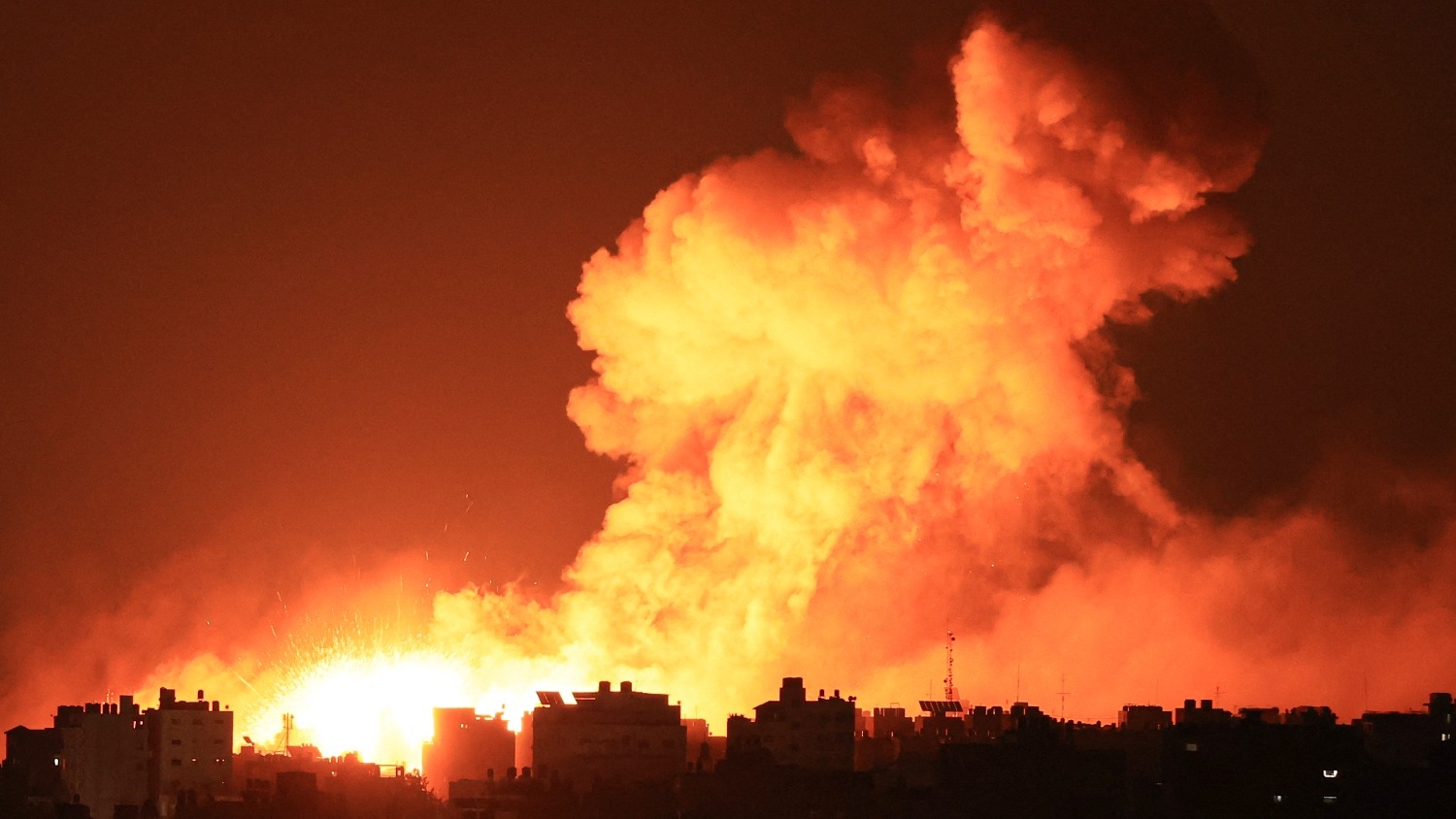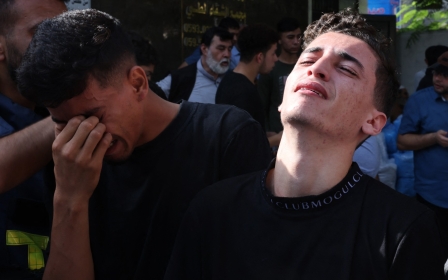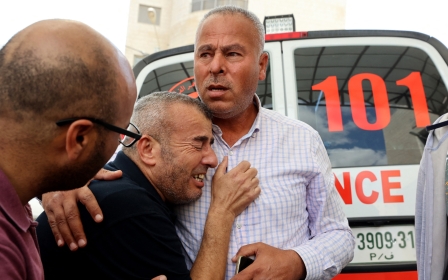Israel-Palestine war: Israel using white phosphorous 'unlawfully' in Gaza, Human Rights Watch says

Human Rights Watch has warned that Israel is using white phosphorous "unlawfully" in the Gaza Strip and Lebanon, citing the risk it poses to civilians.
The rights group said it had verified footage taken in both regions over the past week which showed multiple airbursts of artillery-fired white phosphorus over the port of Gaza City, as well as two rural locations along the Israel-Lebanon border.
“Any time that white phosphorus is used in crowded civilian areas, it poses a high risk of excruciating burns and lifelong suffering,” said Lama Fakih, Middle East and North Africa director at Human Rights Watch, in a statement.
Israel has been bombing the densely populated Gaza Strip after Palestinian fighters, led by Hamas, launched a surprise attack on Israel beginning Saturday, killing at least 1,300 Israelis and taking at least dozens of Israelis hostage. Israel's bombardment of Gaza in response has killed at least 1,500 Palestinians, half of whom are women and children.
“White phosphorous is unlawfully indiscriminate when airburst in populated urban areas, where it can burn down houses and cause egregious harm to civilians,” Fakih said.
New MEE newsletter: Jerusalem Dispatch
Sign up to get the latest insights and analysis on Israel-Palestine, alongside Turkey Unpacked and other MEE newsletters
Human Rights Watch said they had verified videos taken in Lebanon and Gaza on 10 and 11 October 2023.
White phosphorous is an incendiary chemical that ignites when in contact with air and can cause severe burns in people or structures it comes into contact with.
"Upon contact, white phosphorus can burn people, thermally and chemically, down to the bone as it is highly soluble in fat and therefore in human flesh. White phosphorus fragments can exacerbate wounds even after treatment and can enter the bloodstream and cause multiple organ failure," according to Human Rights Watch.
The Israeli air force said on Thursday afternoon that it had dropped 6,000 bombs on Gaza since Saturday hitting 3,600 targets.
Deadliest morning
Israeli air strikes killed at least 250 people on Thursday morning alone, including 44 members of the same family in Jabalia.
Thursday’s massacre took place in two areas, Jabalia, some four kilometres north of Gaza City, and al-Shati camp, on the eastern Mediterranean coast. The death toll is expected to rise as scores of bodies are still trapped under rubble with no means to retrieve them.
Follow Middle East Eye's live coverage for the latest on the Israel-Palestine war
Al-Shati camp, built on an area of only 0.52 square kilometres, is one of the most densely populated areas in the world. Many families across Gaza have fled Israel's relentless bombing campaign to the camp, already brimming with a population of 90,713 people.
Residents that Middle East Eye spoke to said they had not received notices from the Israeli army to evacuate the area before the attack. Several experts have pointed out that even if notice is given to residents, it does not render the bombing legal under international law, especially if the target is a residential area or building.
Witnesses told Middle East Eye that at least 10 multi-storey buildings were flattened in the attack on al-Shati.
Middle East Eye delivers independent and unrivalled coverage and analysis of the Middle East, North Africa and beyond. To learn more about republishing this content and the associated fees, please fill out this form. More about MEE can be found here.




